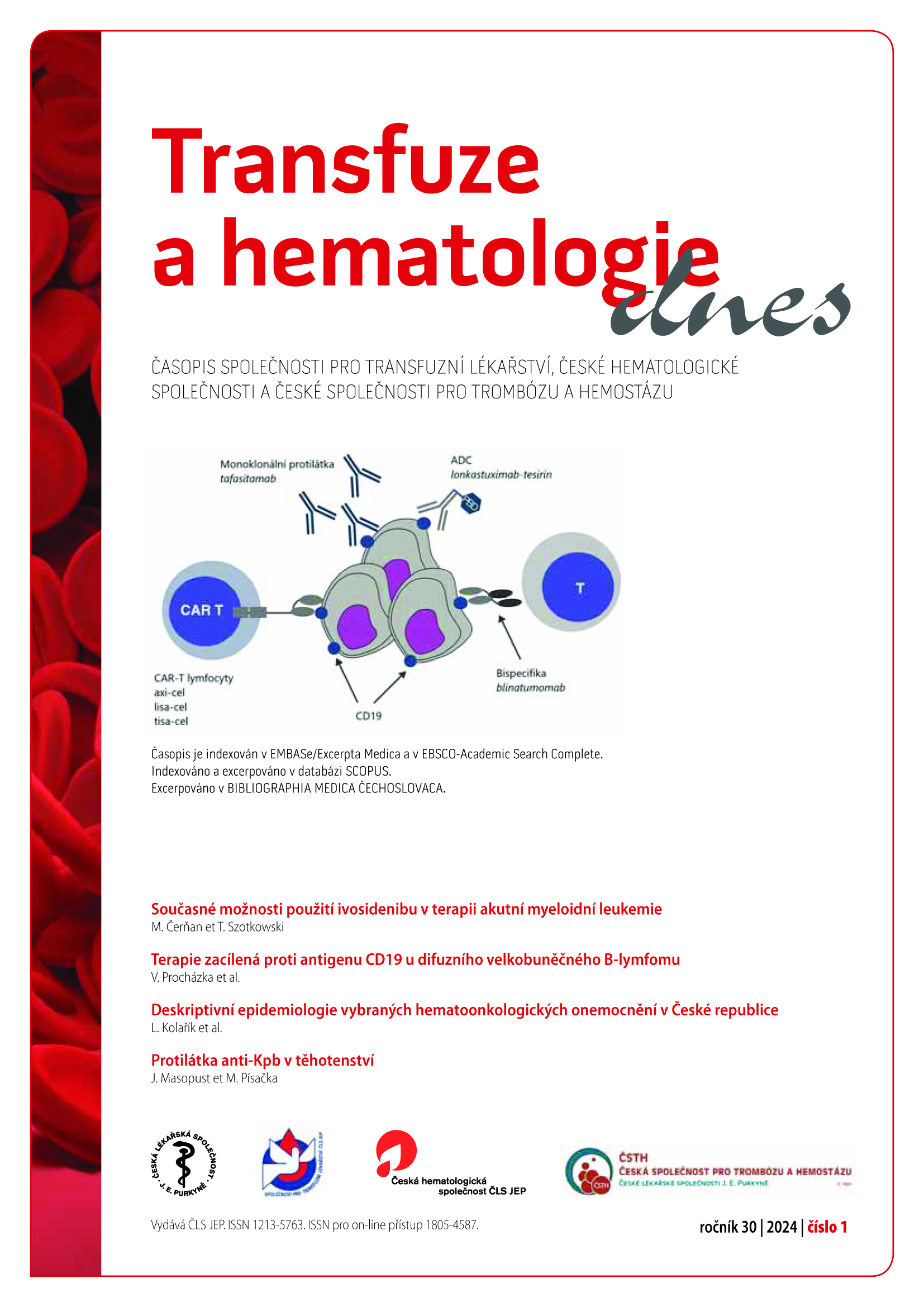Terapie zacílená proti antigenu CD19 u difuzního velkobuněčného B-lymfomu
Anti-CD19 terapie u DLBCL
Keywords:
difuzní velkobuněčný B-lymfom, imunoterapie, monoklonální protilátky, antigen CD19Abstract
Diffuse large B-cell lymphoma (DLBCL) is the most common type of malignant lymphoma in the Czech Republic. It is a very heterogeneous group of aggressive tumours with diverse biology, varied clinical manifestations, in which the standard of therapy is the concept of immunotherapy targeted against the CD20 antigen of tumour cells. The combination of the monoclonal antibody rituximab with chemotherapy has historically demonstrated a major benefit of cytotoxic immunity mechanisms in patients. This therapeutic concept, which has historically led to cure in nearly two thirds of patients, has encountered its limits. Research into alternative immunotherapy approaches has led to the introduction of a generationally successful new class of drugs targeting the CD19 antigen with different mechanisms of action ranging from simple antibody action (tafasitamab) to antibody-drug conjugate (ADC) administration (loncastuximab-tesirine), to the formation of sophisticated CAR-T lymphocyte chimeric constructs (axicabtagene ciloleucel, tisagenlecleucel and lisocabtagene maraucel). The review aims to summarize the findings of advanced medical research of new molecules, their sequences and combinations with implications for therapeutic practice in the Czech Republic.


